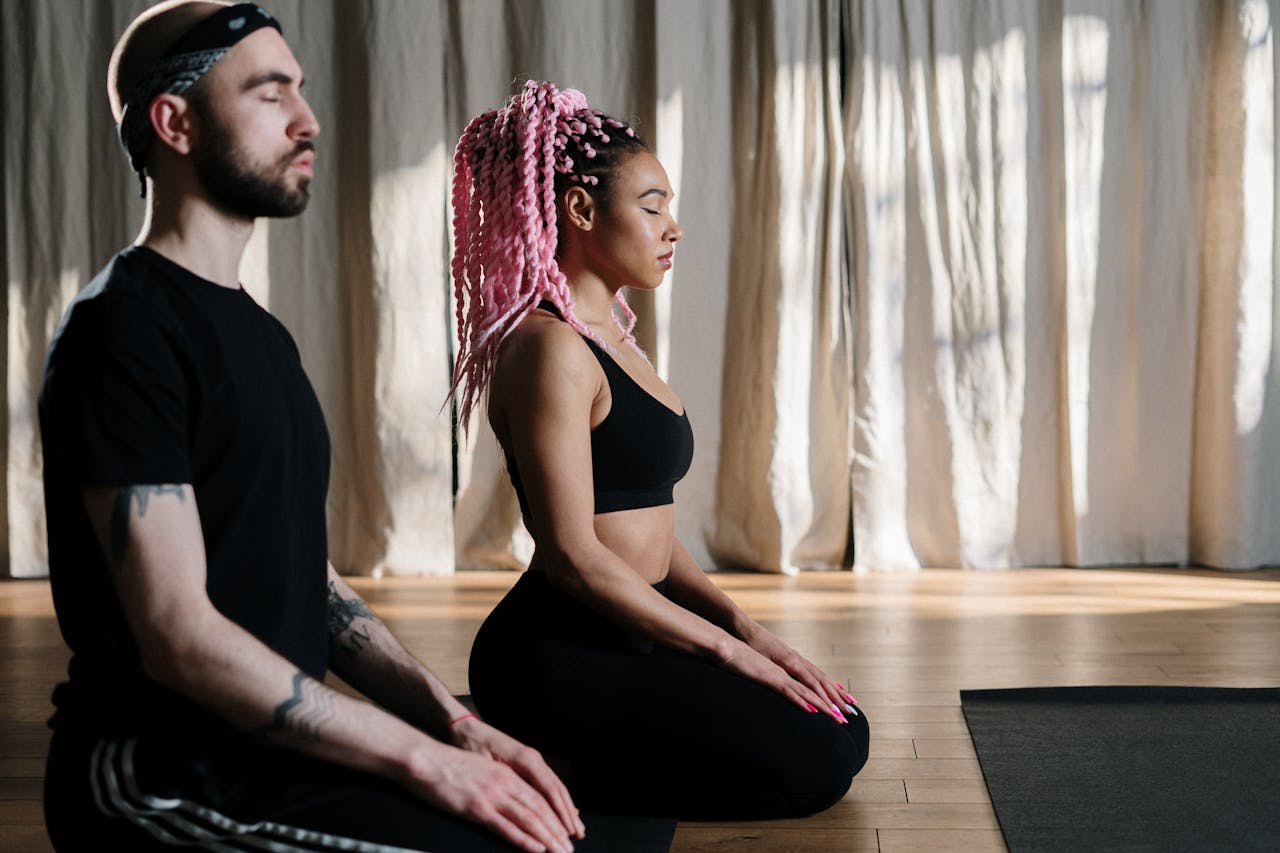

How Inner Calm and Real Connection Help You Bounce Back from Life’s Challenges
Life throws a lot at us grief, deadlines, diagnoses, uncertainty. Some days feel like juggling fire. That’s why emotional resilience isn’t just a buzzword it’s how we keep going.
The good news? Resilience isn’t something you’re born with or without. It’s something you can build. And two of the most powerful tools to do just that are meditation and community support.
When you make them part of your daily rhythm, they don’t just help you stay calm—they help you come back stronger.
It’s not about pretending everything’s fine. Resilience is about facing stress, loss, or fear—and finding your way through. It’s the ability to:
And the best part? You can strengthen that ability over time especially through intentional habits like meditation and meaningful connection.
Meditation helps you press pause on life’s noise. It brings you back to the present, grounds you in your body, and trains your mind to stop spiraling.
Here’s how it makes you more resilient:
Stress flips on your fight-or-flight response. Meditation flips the switch the other way. With regular practice, you’ll:
You start noticing your triggers instead of being hijacked by them.
With time, you can respond with intention, not just instinct. That space between emotion and reaction? That’s where power lives.
MRI studies show that consistent meditation strengthens areas linked to:
So, you’re not just feeling better you’re building a brain that’s wired for resilience.
You don’t need fancy gear or hours of silence. Just start where you are.
Focus on your breath. When your mind wanders, gently bring it back.
Why it works: Builds awareness, reduces reactivity, and trains your attention.
Repeat simple phrases of compassion toward yourself and others.
Why it works: Softens self-judgment, nurtures connection.
Slowly move attention through your body, relaxing each part as you go.
Why it works: Releases tension and brings your awareness back to the present.
Name three things you’re thankful for. Visualize them. Feel it.
Why it works: Shifts your mind away from scarcity and toward strength.
You can meditate daily, but humans still need each other.
Supportive relationships are proven to lower anxiety, improve health outcomes, and protect against burnout. We’re not meant to carry pain alone.
And here’s the key: it’s not just about what you get from a group it’s about who you become when you’re part of one.
When meditation meets community, everything expands.
Whether it’s an online group, a circle in your local park, or a few friends breathing together on Zoom shared silence builds trust.
Platforms like MentalHappy make it easy to join guided meditations and group conversations that combine both reflection and connection.
You don’t need an hour. You just need to start. Here’s a sample flow:
🕔 Morning (5–15 mins): Mindfulness or gratitude
→ Set your tone. Choose calm over chaos.
🕑 Midday (5–10 mins): Breathing or body scan
→ Pause. Reset before your energy dips.
🌙 Evening (10–20 mins): Loving-kindness or journaling
→ Reflect. Let go of the day with compassion.
💬 Weekly (1–2 times): Join a support group
→ Talk it out. Hear others. Be heard.
This rhythm builds resilience in real time. You’re not just reading about self-care you’re living it.
After losing her husband, Karla found herself stuck in grief. Meditation helped her breathe again. But it was the weekly group check-ins that helped her speak again.
“Breathing in silence with other widows helped me feel like I belonged somewhere again.”
Now, she co-leads her own grief circle and helps others find hope in heartbreak.
Crohn’s disease shook Jamal’s confidence and drained his energy.
He started small five-minute meditations and a weekly group on MentalHappy.
“Meditation gave me calm. The group gave me courage.”
Today, Jamal teaches guided meditations for others with invisible illnesses and shows up as the leader he once needed.
Let’s be real starting something new always feels a little weird.
Here’s what people worry about (and why it’s okay):
“I can’t sit still.”
Try walking meditations or body scans. Movement counts.
“My mind won’t stop.”
That’s the practice. Meditation isn’t about stopping thoughts it’s about noticing them.
“Groups make me anxious.”
Start with an anonymous or text-based community. Ease in at your pace.
“I’m too busy.”
Even five minutes changes things. Think quality, not quantity.
You don’t need to have it all figured out. You just need a starting point.
Meditation gives you tools. Community gives you connection. Together, they help you bounce back not perfectly, but with grace, clarity, and strength.
Resilience isn’t about avoiding storms it’s about learning how to dance in the rain, knowing you’re not dancing alone.
Join guided meditations and find your support circle at MentalHappy.com.
Because resilience isn’t built in isolation, it’s built together.